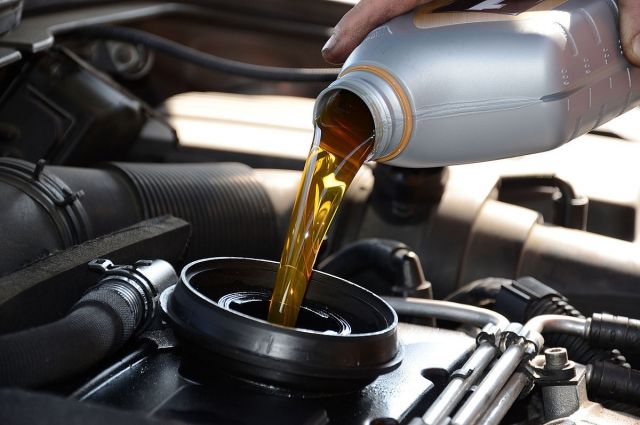
Should engine oil be changed for hot or cold weather?
The outside temperature can change how the engine oil works. Multi-viscosity engine oil makes it easy to keep your vehicle running efficiently all year round.
Oil changes are critical to your vehicle's longevity and performance and provide maximum protection against engine wear and overheating. Motor oil is measured by viscosity, which is the thickness of the oil. In the past, automotive oils used the term "weight", such as 10 Weight-30 oil, to define what the term "viscosity" means today.
Before the advent of synthetic motor oil, vehicle owners had to rely on oil formulations with only one viscosity. This helped address issues related to the difference in thickness between the colder winter months and the warmer summer months. The mechanics used a light oil, such as 10-viscosity for colder weather. During the warm months of the year, an oil with a viscosity of 30 or 40 prevented the oil from breaking down at elevated temperatures.
Multi-viscosity oils solved this problem by allowing the oil to flow better, which remained thin when the weather turned cold and also thickened when the temperature rose. This type of oil provides the same level of protection for cars all year round. So no, vehicle owners don't need to change engine oil in hot or cold weather.
How multiviscosity oil works
Multi-viscosity oils are among the best motor oils for vehicles because they protect engines at various temperatures. Multi-viscosity oils use special additives called viscosity improvers that expand when the oil is heated. This expansion helps provide the viscosity needed at higher temperatures.
As the oil cools, the viscosity improvers shrink in size. This ability to adapt viscosity to oil temperature makes multi-viscosity oils more efficient than older motor oils that vehicle owners had to change based on season and temperature.
Signs that you need an engine oil change
Mobil 1 engine oils, especially Mobil 1 Advanced Full Synthetic Engine Oil, last longer and help protect your engine from deposits and leaks regardless of temperature. Regardless of their durability, motor oil in a car needs to be changed over time. Look for signs that your car's engine oil needs to be changed to protect your engine, including:
If the engine is running louder than usual, this may indicate that the oil needs to be changed. Engine parts rubbing against each other can cause excessive engine noise. Have a mechanic check the oil level and, if necessary, change or top up the oil and, if necessary, change the car's oil filter.
The Check Engine or Oil light comes on and stays on. This indicates problems with the engine or oil level. In this case, ask the mechanic to run diagnostics and check the oil level.
When the mechanic reports that the oil looks black and gritty, it's definitely time for the mechanic to change the oil.
Exhaust smoke when it's not cold outside can also indicate a low oil level. Have a mechanic check the level and either bring it up to the correct level or change it.
Most mechanics stick a sticker somewhere inside the driver's side door when changing the oil so that vehicle owners know when it needs to be changed again. Following a regular maintenance schedule and regularly changing the oil in your vehicle will ensure that your vehicle's engine runs in top condition. By using a multi-viscosity oil, vehicle owners ensure they are using the best automotive engine oil to protect their engine.